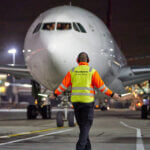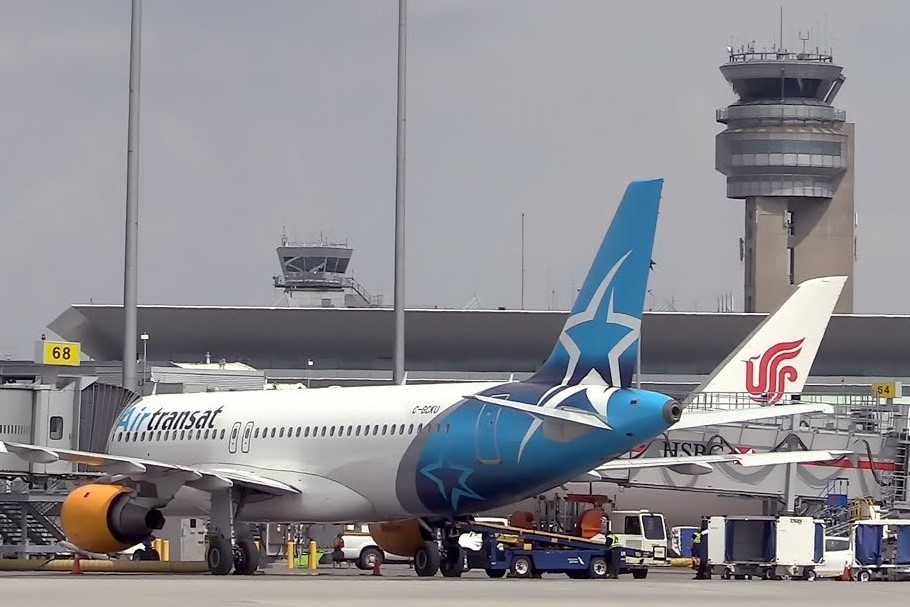Aviation industry pressure is intensifying on governments to adopt a long-term goal to help decarbonise air transport when they meet at this year’s ICAO 41st Assembly. Executives from across the industry have met to detail aviation’s climate aspirations ahead of the Assembly, to be held in September. At a Montreal meeting, the cross-industry Air Transport Action Group (ATAG) urged ICAO’s 193 member nations to agree on stable policies that enable aviation to transition to a net-zero future, reports Tony Harrington. “The decarbonisation of the global economy will require investment across countries and across decades, particularly in the transition away from fossil fuels,” said Haldane Dodd, ATAG’s Executive Director. “Stability of policy will matter for that investment environment.” The Clean Skies for Tomorrow Coalition, an initiative led by the World Economic Forum, has also called for an end to policy uncertainty on aviation decarbonisation, urging governments and industry to collaborate, particularly on expediting delivery of affordable supplies of sustainable aviation fuels.
The aviation industry is keen to reduce its emissions. But the cost of SAF is estimated to be at least three times that of conventional fossil fuels, deterring many airlines from buying the fuel, while lack of demand has left prices high and production low. As well, new propulsion technologies including hydrogen and electric power are still in development, and initially likely to be feasible only for short-range flights, limiting their potential to reduce emissions.
“In October last year, the industry – airlines, airports, manufacturers and business aviation – all committed to raise ambition on long-term climate action and pursuing net-zero carbon emissions by 2050,” said Dodd, in a statement following an ATAG-organised meeting, Aviation Net-Zero Dialogue, held in Montreal. “This was backed up by a high-level plan on how it can be achieved including advances in technology and a shift to new types of low-carbon fuel.
“We are one of the only industries in the world to have this kind of joined-up global vision but we need governments to also take part in this journey. The aviation industry is calling on governments meeting at this year’s Assembly to adopt a long-term climate goal aligned with industry’s ambitions.
“We know these ICAO negotiations are challenging. We are dealing with a global approach to a complex issue. We are trying to shift our energy supply very rapidly from something that has been built up over the last century. We are trying to do it without harming growth, ensuring we can continue to connect all parts of the world and provide jobs and be a conduit of trade. But the risks of not agreeing a goal also provide important impetus to the talks.”
ATAG said key to the discussions was balancing the need to decarbonise in a way that did not distort competition globally yet “raised climate ambition everywhere”, while taking into account the different levels of development and capacity around the world.
Speaking also at a UN meeting in Stockholm to mark 50 years since the 1972 UN Conference on the Human Environment, which established the United Nations Environment Programme and other processes including the UN Framework Convention on Climate Change, Dodd acknowledged the net zero emissions by 2050 pledge “is going to be a significant challenge, but we know that by working together we can make it happen.
“And we urge governments to grasp the opportunity of sustainable aviation fuel – on the flightpath to 2050, we have the chance to support more climate-friendly connectivity and transport, green energy industries in nearly every country on earth and up to 14 million jobs worldwide.”
Ahead of its Assembly, ICAO is inviting governments to take part in a hybrid high-level meeting on the feasibility of a long-term aspirational goal (HLM-LTAG) in Montreal on July 19-22. Representatives, said ICAO, “will discuss the CO2 emissions reduction scenarios and options for a goal, along with the means of implementation and the monitoring of progress, before concluding with recommendations.” The meeting will be preceded by an open-to-all online ICAO Stocktaking event to inform delegates and others on the latest developments on technology, operations and fuels.
Meanwhile, the Clean Skies for Tomorrow Coalition, in its newly-released 2030 ambition statement, said aviation historically accounted for around 1 billion tonnes, or 2-3% of global CO2 emissions, each year and risked rising again as airlines recovered from the pandemic and resumed operations.
“Members of the coalition agree that achieving net zero in the sector will require reduction, as far as possible, of the emissions caused by the aviation sector through efforts including the optimisation of routes and increased energy efficiency through the use of new aircraft and improved ground operations,” said the coalition. “Any remaining emissions must be balanced by appropriate carbon removal, so as to arrive at net zero emissions in the sector.
“Hybrid-electric and hydrogen-powered aircraft could significantly help the industry reach the next efficiency horizon, but development and deployment at scale will take time and the technology will be first available for short to medium range aircraft. The deployment of sustainable aviation fuels is the most promising option to significantly reduce the industry’s carbon emissions in the near term, and for long-haul flying, even beyond 2050.
“The key issue currently preventing the production and use of SAF from taking off is the price gap between fossil-based jet fuel and SAF, which remains prohibitively large. But fuel providers are lacking a strong demand signal to increase production, and demand is low due to the high price premium. Furthermore, policy uncertainty deters investment, as does the high level of risk associated with new technologies.
“We are therefore calling on governments, international organisations and other stakeholders to work with us to achieve our vision through comprehensive policy mechanisms, targeted investments and fiscal support and regulations that afford a level playing field while incentivising transformation. Together we can take a giant leap towards the decarbonised, sustainable and affordable aviation industry needed for our global future.”
Photo: Montréal-Pierre Elliott Trudeau International Airport















More News & Features
Inclusion of SAF in new climate legislation for EU cleantech industry welcomed by aviation sector
Shortages of new aircraft impact aviation’s sustainability plans, says aircraft lessor Avolon
ICAO agrees a global framework and emissions goal on the transition to aviation clean energy
Governments gather to seek agreement on a global framework for aviation’s energy transition
Australia focuses on emissions in Aviation Green Paper, as Qantas ups SAF commitments
European Parliament adopts rules to stimulate supply of sustainable aviation fuels